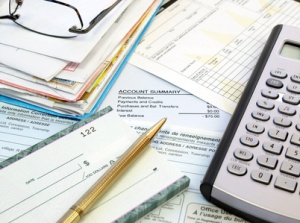 Errors on your credit report cannot be taken lightly. They must be corrected as early as possible or else they can cause irreparable damage to your credit score. This in turn will affect your dealings with your employer, credit card company, insurance company, credit card issuer, and others. If you have a poor credit score because of an erroneous credit report, you will not get the credit line or the lower rates of interest you desire.
Errors on your credit report cannot be taken lightly. They must be corrected as early as possible or else they can cause irreparable damage to your credit score. This in turn will affect your dealings with your employer, credit card company, insurance company, credit card issuer, and others. If you have a poor credit score because of an erroneous credit report, you will not get the credit line or the lower rates of interest you desire.
Credit report errors can be as small as names or words spelt wrongly or erroneous reports of late payments that might make it difficult for you to borrow money in future. Usually, credit reports are full of errors although credit bureaus never reveal statistics of how many errors get into credit reports. Credit analysts, however, have thoroughly studied the situation and reached the conclusion that the error rate is nearly 25 percent. Recently, the Federal Trade Commission made a study, which revealed that 16 percent of credit reports contain errors that can have an adverse effect on credit scores. In 2004, the credit bureaus informed the public that the percentage of error is just 3 percent, but even that is a large number, impacting millions of people. Many other surveys show that the percentage of error is much higher – around 80 percent.
Credit reports might contain wrong dates, wrong addresses, outdated employment or residential details, reports of bad accounts that consumers might have rectified long back, and many more. Errors can appear in credit reports in a dozen different ways. Since most of the procedures are automated, merchants and creditors might send outdated, wrong, or incorrect information to the credit bureaus. In some cases, credit bureaus mix up identities because of weary employees inputting wrong information into their computers. Innumerable terrible errors can creep into credit reports because of credit card fraud and identity theft.
The employees at credit bureaus are human beings who can make a number of mistakes simply because they have to manage loads of credit-related information. Your credit report comprises information submitted by companies you deal with; these can be your credit card companies, service providers, merchants, and others. The contents of your credit report are based on the information provided by these third parties and need not necessarily be accurate. They are always open for dispute and must be disputed if you want to maintain a good credit score and grab all the benefits that come with it.
Errors can creep into your credit report when merchants and credit companies make errors in entering data or consider you responsible for someone else’s mistake, when someone steals your identity and fails to pay your bills, and many other reasons. You might not get a satisfactory credit report if one of your creditors has an unpleasant opinion about your way of dealing with the money you borrowed from them.
You will, therefore, find yourself writing dispute letters to credit bureaus every now and then, requesting them to correct or remove the errors in your credit report.